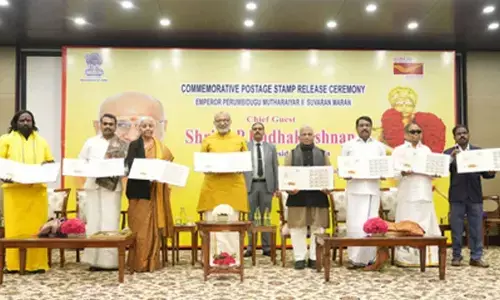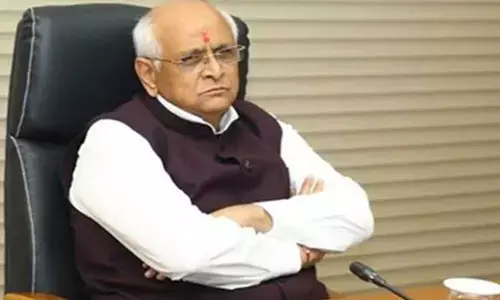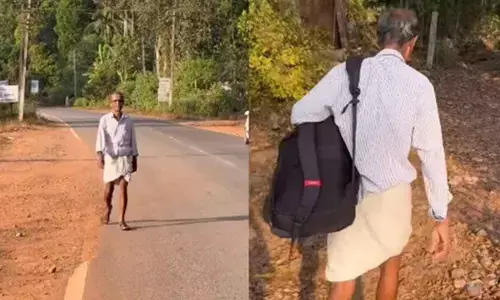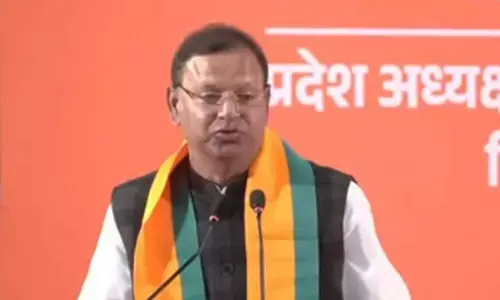Worse Than Colonial Rule And Emergency: Dragon of sedition against schools, colleges
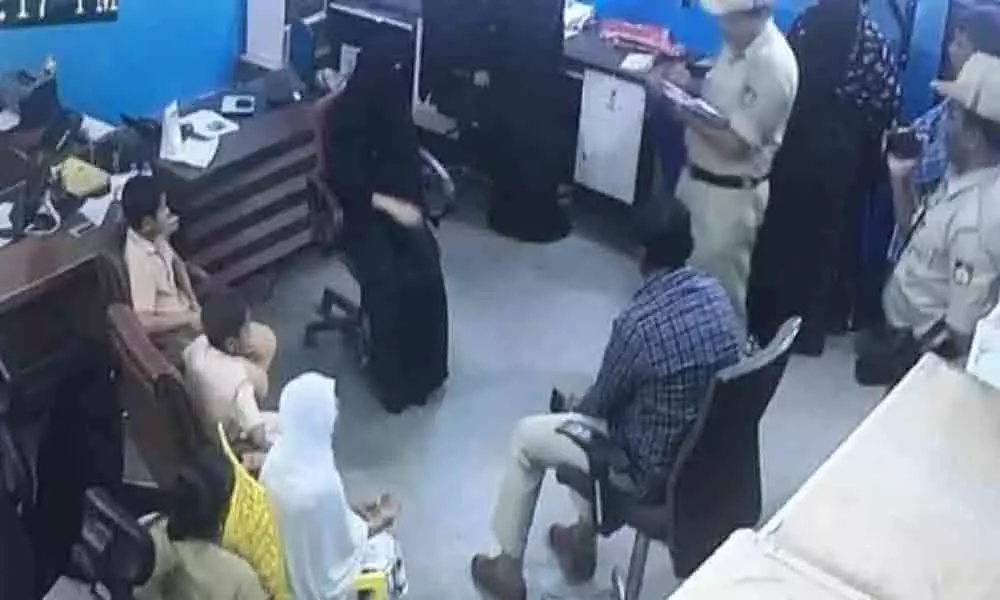
British Rules who hated Indians and their revolution brought Section 124A into IPC in 1870 specifically to suppress the dissent against colonial rule.
British Rules who hated Indians and their revolution brought Section 124A into IPC in 1870 specifically to suppress the dissent against colonial rule. It is tragedy of Independent India, that the Congress party, which led the movement and the first government misused it while the present BJP regime is abusing it even against the schools and colleges.
Sometimes police silently watch and violently breach peace, while masked goons enter the campus to physically assault the protestors. British also did not abuse sedition law against children.
The police and rulers in Karnataka and their frontal political organisations are assaulting a minority school accusing the children, parents and teachers of sedition.
I strongly oppose those who made children slap the Prime Minister's photo with chappals. It is undoubtedly improper, and not dignified. It is another expression of hate one should hate.
But still that cannot attract even iota of content of definition of sedition crime. It is an unprecedented oppression of expression. It could be a possible criminal or civil defamation of Narendra Modi, for which he must file suit or complaint personally.
But it can never be a crime of sedition and the drama (play) that criticises the CAA cannot be considered seditious and inflammatory. It is worse than colonial rule and dangerous than Emergency situation.
Some media reports have also said that the students were subjected for four to five hours of questioning about those who wrote the script and assigned to deliver specific dialogues. Imagine a school-going child answering the 'interrogation' by the police and degree of its fearful atmosphere.
The Karnataka State Commission for Protection of Child Rights (KSPCR) noted that the police authorities had flouted the norms by sending the nine-year-old to be looked after by a neighbour without informing the local Child Welfare Committee following the arrest of the child's single mother along with the school's headmistress on 30 January.
The Karnataka Child Rights Commission Chairman Dr Antony Sebastian, wrote to the Superintendent of Police and the Deputy Commissioner, saying that an "atmosphere of fear" was created at the Shaheen Urdu Medium Primary School due to the questioning of young students, including a nine-year-old. A two-member panel of the child rights body had conducted an inquiry into the incident.
Sebastian, a juvenile justice advocate, stated that the interactions with parents, school officials, children and the police, photographs and CCTV footage, show it clearly that the police violated the rights of the children at the school.
During the investigation, the children were forced to sit at the police station. Commission found during the questioning of students that some policemen present were in their uniforms, thereby, violating the law. Neither their parents nor guardians were present during the interrogation.
"The inquiry has also found that a child whose parent was arrested was sent to the home of a neighbour without informing the Child Welfare Committee in violation of the Juvenile Justice (Care and Protection of Children) Act, 2000," Sebastian said.
The Child Rights Commission also found that many students have stopped going to school after the police investigation. The headmistress, Fareeda Begum and Nazbunnisa, the mother of a nine-year-old girl, have been remanded to judicial custody.
The landlord of the house where Nazbunnisa stayed as a tenant was taking care of the child. She is traumatised. Case of sedition was booked on the basis of a complaint of a local activist of the Akhil Bharatiya Vidyarthi Parishad (ABVP) on 26 January against the play, who said that he saw a video of the incident on a local journalist's Facebook page, where in students were used to promote anti-national sentiments as some of them could be seen in the video slapping pictures of the Prime Minister. Can a child or her mother be arrested in such a case?
First, it is not a crime that cannot attract provisions of sedition. If someone authored or directed it, he would be responsible for the content of the play. If the content is a fair criticism of the policy of the Union government on Citizenship, it cannot even be considered as defamation.
Even the courts are not made to understand the law of sedition cannot be invoked to punish children in this case. It is surprising to know the level of the basic legal education the persons dealing with law in this incident.
British rulers have initially used against violent revolutionaries like Savarkar, then they targeted non-violent nationalist leaders like Tilak and Gandhi. Historians attribute the reason for this shift in using sedition weapon as the acknowledgement of the greater threat posed by the non-violent leaders spreading anti-colonial sentiments among Indian subjects than the violent acts of revolutionaries.
Gandhi said in his trial that great patriots had been convicted under Section 124A. During colonial days the sedition became synonymous with nationalism.
Today, strangely the so-called nationalism means controversial policies of NDA government and to defend it by sedition law. The sedition law was criticised by nationalist leaders in India and used to challenge the legitimacy of colonial rule that criminalised free speech. We now see the criminalisation of free speech, cinema, drama in school and speech in university.
Section 124A of the IPC was amended after Independence to remove mention of British rule, the sedition is defined as: 'an act that brings or attempts to bring into hatred or contempt, or excites or attempts to excite disaffection towards the government established by law in India by words, either spoken or written, or by signs, or by visible representation, or otherwise'.
While national leaders opposed the sedition law, Constituent Assembly debates reveal a recognition of the need for this colonial sedition law. During 1950s several courts held law of sedition as unconstitutional but the Supreme Court in Kedar Nath Singh vs the State of Bihar, unfortunately overruled them and declared it valid.
At the same time, it has outlines that, 'disloyalty to government established by law is not the same thing as commenting in strong terms upon the measures or acts of government, or its agencies, so as to ameliorate the condition of the people or to secure the cancellation or alteration of those acts or measures by lawful means'.
It means that the subversion of the government can be an offence, but the criticism of its actions is not. Inciting violence against the State is a crime, but expressing a non-violent opinion is a democratic right. The school in Bidar did not incite violence against the State.
Police cannot find any evidence of incitement to violence, in spite of its hours of interrogation of the children. Slapping a photo with slipper is strong expression of adverse opinion but does not amount to sedition.
Under the Johannesburg Principles on National Security, Freedom of Expression and Access to Information of 1996, restrictions on freedom of expression are sanctioned on account of threats to national security. Indiscriminate slapping of sedition cases against the protestors is blatant abuse of the power to prosecute without caring for the fact that the incident does not amount to sedition.
By the time the courts find that it was not sedition, the citizens were already punished procrastinating incarceration for years. Their freedom of speech and physical liberty is curtailed until they get bail or acquittal, for which there is no remedy available. It is nothing but colonial continuity by the rulers and abuse of State power against the criticism.
From the higher rate of acquittals and abysmally low convictions, the abuse of draconian law of sedition by the BJP regime is established. Data from the country's Ministry of Home Affairs reveals that between 2014 and 2016, 179 people were arrested on charge of sedition with only two convictions.
Selective slapping of sedition cases against targeted individuals is the present-day phenomenon. In 2016, case against Kanhaiya Kumar, who was part of JNU students' protest and the case against Aseem Trivedi, a journalist who participated in the anti-corruption movement of 2012 show how this dangerous law was used to suppress dissent and oppress the movement by just considering certain words of dissent as acts threatening the nation.
While Kanhaiya Kumar was charge-sheeted for alleged chanting of anti-national slogans, Trivedi's charge-sheet alleges cartoons insulted 'national honour'. Human rights activist Binayak Sen was target in 2011 in Chhattisgarh. He was charged with sedition alleging links with Naxalite movement. Upendra Nayak, who to defend the Adivasis in Odisha in fabricated charges of Maoist links, was arrested in 2018 under similar charges.
Whichever is the ruling party, they do not hesitate to use the sedition law and the fuelling of this comes from social media where the paid and organised teams of the ruling party, and offices of corporate supporters use the internet platform to spread the hate and troll the critiques as anti-nationalists and urban Naxalites.
New description of rulers is 'tukde tukde gang' (team of small pieces) a hateful reference to alliance of Opposition. The policy is to frighten the critiques and to foreclose the criticism so that none understands the other side of the untruthful propaganda of the rulers.
Freedom from fear and freedom of expression are under threat with abuse of law of sedition. The criticism against State action is projected as act against nation. It is strange those who promote communal division prosecute the critiques as threat to peace. Sedition cases, most of which do not go to trial are filed to harass the critical minds to silence them.
(The writer is former Central Information Commissioner and Professor at Bennett University)








